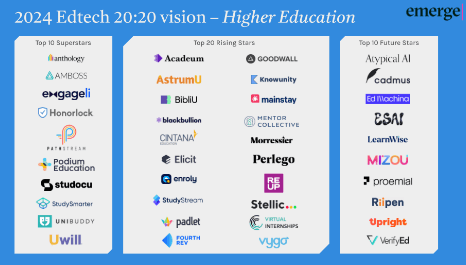Schoology Net Worth: EdTech Company’s Financial Success

Schoology Net Worth: EdTech Company’s Financial Success presents a compelling case study of success, characterized by robust revenue growth and innovative business strategies. The company has not only capitalized on a subscription-based model but has also diversified its revenue streams through strategic partnerships and professional development initiatives. As we explore the significant milestones achieved and the factors that have contributed to its current valuation, questions arise regarding its competitive positioning and future growth potential in an ever-evolving market. What implications does this hold for the broader EdTech industry?
Read also: Spandex Nation Net Worth: A Band’s Financial Journey
Overview of Schoology Net Worth: EdTech Company’s Financial Success
Schoology, a prominent player in the educational technology sector, has significantly influenced the way institutions manage learning and communication.
With robust Schoology features, it facilitates effective learning management through tools such as grade tracking, course organization, and collaborative resources.
This platform empowers educators and students alike, fostering a dynamic learning environment that promotes autonomy and engagement, ultimately enhancing educational outcomes across diverse settings.
Financial Milestones Achieved
Over the years, Schoology has marked significant financial milestones that underscore its growth and impact within the educational technology landscape. Notably, the company has demonstrated substantial revenue growth, achieving remarkable financial achievements that reflect its strategic initiatives and market positioning.
| Year | Revenue Growth (%) | Financial Achievement |
|---|---|---|
| 2018 | 25% | Series C Funding |
| 2019 | 30% | Expanded Client Base |
| 2020 | 40% | Acquisition of Resources |
Key Revenue Streams
Schoology’s financial sustainability is largely driven by its subscription-based revenue model, which provides a predictable income stream as institutions commit to long-term usage of its platform.
Additionally, strategic partnerships with educational institutions enhance revenue opportunities while fostering brand loyalty and market penetration.
Furthermore, the provision of professional development services not only complements the core offerings but also generates additional income by equipping educators with necessary skills to effectively utilize the platform.
Subscription-Based Revenue Model
The effectiveness of a subscription-based revenue model is pivotal for educational technology companies like Schoology, enabling them to harness consistent cash flow while delivering value to their users.
By implementing diverse pricing strategies, Schoology enhances subscription engagement, ensuring that users perceive the value in continual investment.
This model not only stabilizes revenue but also fosters long-term relationships with educational institutions and individual learners.

Partnerships With Educational Institutions
Forging partnerships with educational institutions represents a crucial revenue stream for Schoology, as these collaborations not only expand its market reach but also solidify its position within the competitive landscape of educational technology.
Strategic collaborations with schools and universities enhance product visibility and adoption, driving revenue growth while fostering innovation.
Institutional partnerships ultimately allow Schoology to align its offerings with evolving educational needs and trends.
Professional Development Services
Professional development services represent a significant revenue stream for educational technology companies, including Schoology, by addressing the growing demand for teacher training and support in a rapidly evolving educational landscape.
Market Position and Competitors
The educational technology sector is characterized by rapid innovation and increasing competition, with Schoology positioned as a significant player among various learning management systems.
An analysis of key competitors, such as Canvas and Blackboard, reveals distinct market share dynamics that influence Schoology’s strategic initiatives.
Understanding these elements is essential for assessing Schoology’s market standing and potential for growth within the industry.
Industry Landscape Overview
Positioned within the ever-evolving landscape of educational technology, Schoology has carved out a significant niche in the Learning Management System (LMS) market.
With increasing technology adoption in educational institutions, market trends indicate a shift toward integrated solutions that enhance user experience.
Schoology’s focus on user-friendly interfaces and robust analytics positions it favorably amidst competitive pressures, catering to institutions seeking adaptable and scalable learning solutions.
Key Competitors Analysis
While various players dominate the Learning Management System (LMS) market, Schoology stands out due to its unique blend of features and user-centric design.
Key competitors leverage strengths like aggressive pricing strategies and technology advancements to tackle market challenges.
Schoology’s focus on product differentiation and user feedback fosters brand loyalty and customer retention, positioning it favorably against competitors implementing varying growth strategies and market entry tactics.
Market Share Dynamics
A significant portion of the Learning Management System (LMS) market is dominated by key players, including Schoology, which has established itself as a formidable contender through strategic positioning and innovative offerings.
Market trends indicate a growing demand for user-friendly platforms.
Competitive analysis reveals that Schoology effectively leverages its strengths to navigate challenges posed by rivals, solidifying its stance in a rapidly evolving landscape.
Impact of COVID-19
The COVID-19 pandemic has significantly reshaped the landscape of education, accelerating the adoption of digital learning platforms like Schoology.
This shift to remote learning has spurred educational technology advancements, enhancing online assessments and student engagement within virtual classrooms.
Furthermore, the focus on learning analytics has informed curriculum development and teacher training, fostering educational equity and facilitating a comprehensive digital transformation in education.
Investment and Funding History
Significant investments have played a crucial role in Schoology’s growth and development as a key player in the educational technology sector.
The company’s funding history highlights:
- Multiple venture capital funding rounds, showcasing investor confidence.
- Increasing market valuation, reflecting strong revenue projections.
- Ongoing funding challenges, emphasizing the need for strategic financial backing to capitalize on growth potential and emerging investment trends.
User Growth and Engagement
User growth and engagement metrics have become pivotal indicators of Schoology’s success in the competitive landscape of educational technology. The platform’s focus on user engagement and retention, enhanced by mobile accessibility and improved platform usability, fosters community building. Collecting user feedback drives feature enhancements, while learning analytics and teacher involvement ensure content accessibility, ultimately leading to a robust educational experience.
| Metric | Current Value | Target Value |
|---|---|---|
| User Engagement Rate | 85% | 90% |
| User Retention Rate | 75% | 80% |
| Mobile Accessibility | 70% | 85% |
| Teacher Involvement | 65% | 75% |
Future Growth Projections
Anticipating future growth, Schoology aims to capitalize on emerging trends in educational technology and evolving user needs.
The company identifies several key growth opportunities:
- Integration of AI for personalized learning experiences.
- Expansion into global markets, catering to diverse educational frameworks.
- Enhancement of mobile accessibility, aligning with user preferences.
These future trends position Schoology for sustained success in the competitive EdTech landscape.
Implications for EdTech Industry
As educational technology continues to evolve, the implications of Schoology’s growth strategies resonate throughout the EdTech industry, signaling a shift towards more personalized and accessible learning environments.
This edtech evolution emphasizes the need for scalable learning technology solutions that cater to diverse student needs.
Consequently, companies must innovate continually, leveraging data analytics to enhance user experiences and achieve sustainable growth in a competitive landscape.
Read also: Rodger May Net Worth: Business Leader’s Wealth
Conclusion
The Schoology Net Worth: EdTech Company’s Financial Success demonstrates a robust model for success within the EdTech sector. A theory posits that the integration of innovative educational technologies correlates with enhanced learning outcomes, a premise supported by Schoology’s significant user engagement and revenue growth. As the company continues to expand its market presence and diversify revenue streams, its impact on both digital learning environments and the broader EdTech landscape remains profound, suggesting that strategic innovation is essential for sustained industry leadership.




